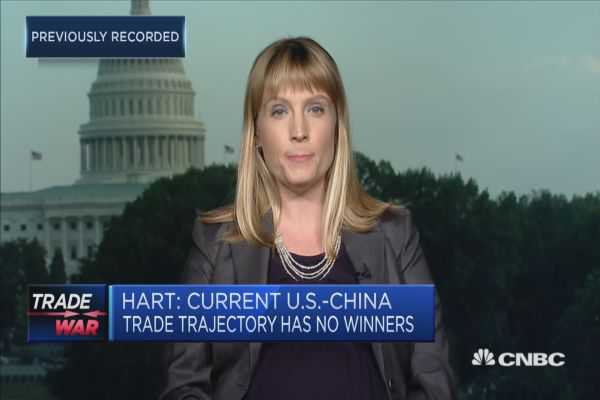Chinese imports fall short of expectations, while exports top estimates
14 July, 2018

China reported Friday that its June imports rose 14.1 percent in dollar-denominated terms, falling far short of a 20.8 percent increase expected by analysts.
China's exports, meanwhile, slightly topped expectations by rising 11.3 percent in June, according to data from the country's General Administration of Customs showed on Friday.
Overall, China ran a $41.61 billion trade surplus in June. Economists had forecast China's overall trade balance to widen to only $27.61 billion in June from $24.92 billion in May.
The data pointed to weakening demand, presenting home-grown headwinds, said Julian Evans-Pritchard, senior China economist at Capital Economics.
The outlook is not positive amid trade tensions with China's largest trading partner, the U.S.
Chinese exports to the world's largest economy will likely slow in the coming months due to heavy U.S. tariffs, Evans-Pritchard said in a note on Friday. A broad softening in the global economy will also weigh, he added.
Meanwhile, import growth into China is also set to slow further amid domestic headwinds due to property controls and weaker investment spending, he said.
China's trade data release on Friday came amid escalating trade tensions between the world's two largest economies.
Earlier this week, President Donald Trump's administration released its list of $200 billion worth of Chinese goods that it said it aims to subject to 10 percent tariffs following a review process. China threatened retaliatory action and pledged that it would lodge a complaint with the World Trade Organization.
Last week, U.S. tariffs on $34 billion in Chinese products went into effect. China responded by slapping 25 percent duties on the same amount in U.S. goods.
It could be some time before the two sides find any resolution, said Melanie Hart, director of China Policy at the Center for American Progress.
"It is unlikely at this point that either side would back down rapidly in the next few months. This is likely to be prolonged," Hart told CNBC's "The Rundown."
"One thing that is abundantly clear is that Washington has been underestimating Beijing's resolve and Beijing has been underestimating Washington's resolve. So that process of coming to an understanding about how firm both sides are willing to be is going to take some time to shake up," Hart said.
